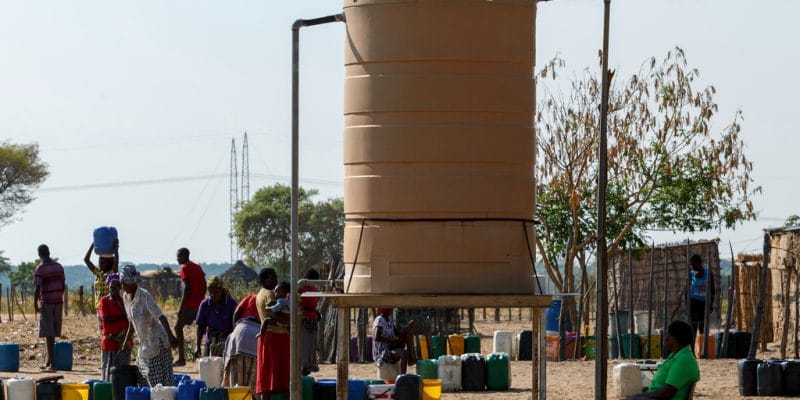More than a month after cyclone Idai, the Zimbabwean authorities are finally providing safe drinking water to the affected people and restarting drinking water supplies in the areas affected by this devastating phenomenon.
Tropical cyclone Idai has passed, but it is still very much on everyone’s mind in Zimbabwe. The latest assessment provided by the authorities and the United Nations (UN) is that 344 people have died and more than 200,000 have been affected. These people, who have no resources, now live in displacement camps. With the support of the United Nations, the State has begun to provide basic necessities, including safe drinking water.
This mission is carried out in the field by the Zimbabwe National Water Authority (ZINWA). The government agency has already deployed 46 water tanks and two tankers in the areas affected by Cyclone Idai. In the meantime, Zinwa also worked to revive the drinking water supply system damaged by the natural disaster.
Much of the infrastructure is operational
“Residents of Murambinda, Nyanyadzi, Matendeudze, Chibuwe, Tanganda, Birchenough Bridge, Rimbi, Odzi, Romsely, Zimunya, Cheche and Chipangayi now receive a normal water supply,” Zinwa said. He added that “in the case of Chipinge, the water treatment plant is now fully operational, while the Zinwa teams have also managed to repair three of the seven boreholes in the area; only the Biriwiri station still needs to be restored and work is already under way to ensure that normal pumping resumes in the station”.
A total of 12 drinking water plants were repaired by Zinwa. Most of the work led to the replacement of water supply pipes, washed away by strong torrents following the passage of strong winds and heavy rains. Some pumping units have been replaced at the water intakes and the roofs of some drinking water plants have been relocated.
Regarding irrigation infrastructure, Zinwa announced the restoration of the Nyanyadzi and Middle Sabi systems. This included repairing the embankment of the irrigation canal, replacing the various panels of the canal that were washed away by the water, and above all repairing the access roads to the irrigation systems. In addition to repairing infrastructure, Zinwa has also built wells to facilitate the population’s water supply. But it will take much longer to reactivate the entire drinking water distribution system, as it will also depend on the speed at which the authorities rebuild the houses swept away by Cyclone Idai.
Jean Marie Takouleu






